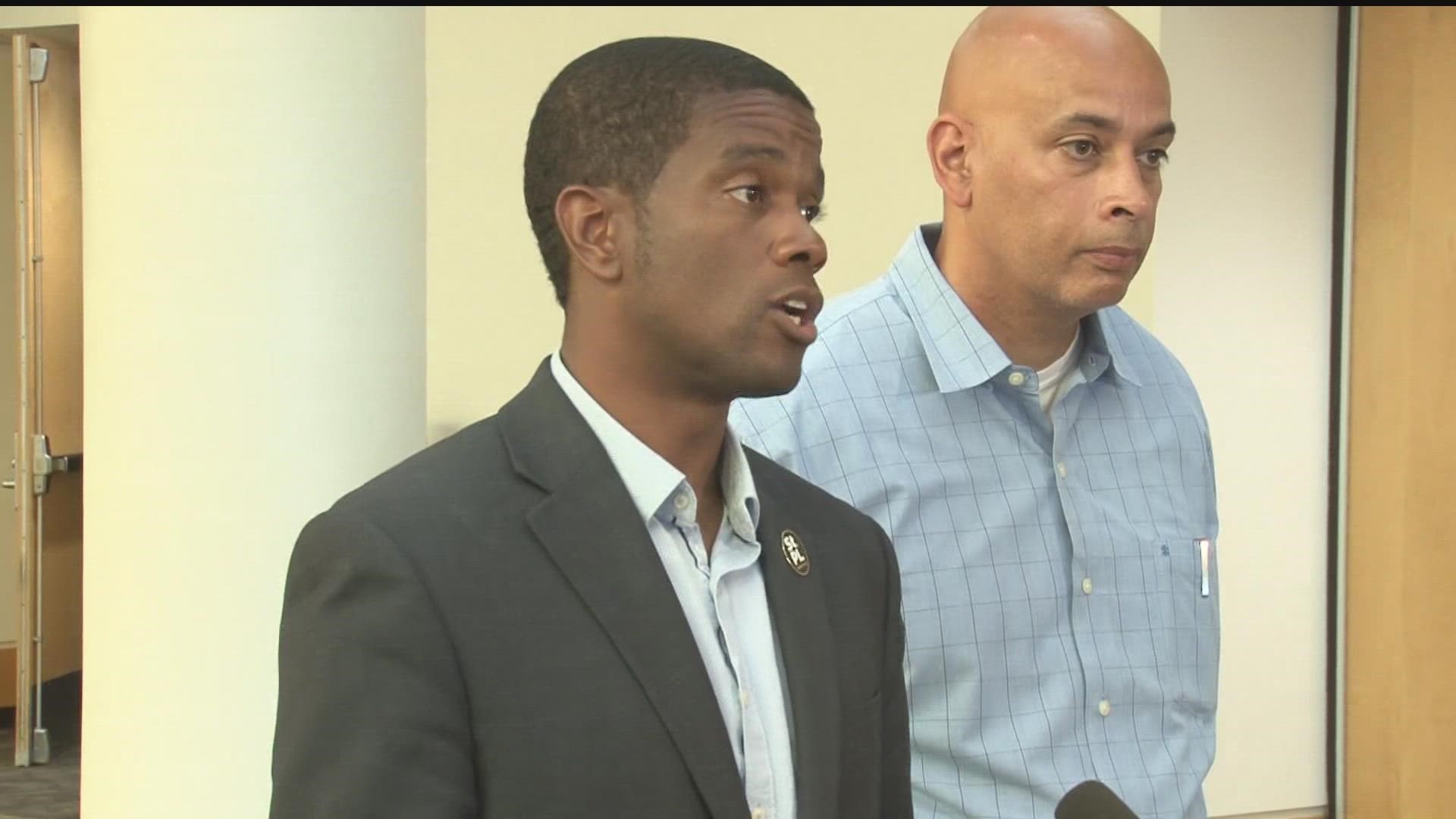ST PAUL, Minn. — St. Paul Mayor Melvin Carter's battle against poverty will enter a new phase this summer with a rebooted, expanded version of his guaranteed monthly income initiative.
Mayor Carter Wednesday announced CollegeBound Boost, a supplemental income demonstration project through the CollegeBound Saint Paul program. At least 333 lower-income families will receive $500 monthly payments for the next two years, and the city will deposit $1,000 in their CollegeBound college savings accounts.
The mayor said the idea is to give a basic income to families without strings attached, so they can spend it where it's most needed.
"Direct cash payments are a simple, effective way to help Saint Paul residents achieve economic security," Mayor Carter remarked. "CollegeBound Boost is our bold approach to combine these payments with asset-building opportunities, supporting families in building for their future."
The funding will come from $4 million in federal American Rescue Plan money, plus $1 million from private donors. Carter is looking to build off the success of the 2020 guaranteed income pilot program which delivered monthly $500 checks to 150 families for 18 months.
It drew some criticism because the city used federal CARES Act money to pay for the pilot, but the federal government eventually signed off on it.
The city is already researching the effectiveness of the program and the impact it's having on families who participate. William Elliot, a University of Michigan professor, is working with the city on that research effort.
"When you look at the impact of poverty in America and impact of poverty in Saint Paul, it impacts every other aspect of life," Carter explained.
"It impacts our public safety strategies, our economic development strategies, our workforce strategies, and literally every single thing else."
Families don't apply for the program. The city staff find the families through the college savings account program, and also provide an online dashboard so they can check to see if receiving the payments will jeopardize any other benefits they may be receiving.
CollegeBound Saint Paul is the city’s college savings initiative. The city started a college savings account with a $50 seed deposit for every child born to a Saint Paul resident on or after Jan. 1, 2020.
Carter made the announcement Wednesday afternoon at the Saint Paul RiverCentre as part of the Midwest Asset Building Conference, an event dedicated to finding ways to solve the wealth disparities in society.
The mayor said one of the goals of the initiative is to refute some of the stereotypes about under resourced people and poverty in general.
"We’ve bought into this notion that people are poor because they lack character, when, in fact, people are poor because they lack money!" Carter told the crowd.
"This space is full of racist and classist tropes about what 'those people' would do with the money if you give them money. We track how they’re doing the spending, because we we’re able to track the dollars on a debit card. And we found out that 'those people' when they get money they pay the rent, they buy groceries, they get a bicycle for their child. They spend it a whole lot like 'we' would."
"And so maybe there was never a 'them' in the first place. Maybe there was never a 'those' in the first place. Maybe there was just a whole big 'we' that we’re all apart of."
Afterwards, a reporter asked Carter what happens when the program ends, whether families will be let down with the money stops flowing. He said the imperative is to help families now who need the help now.
The mayor said the goal of guaranteed income demonstration projects is that the idea will catch on and become something state and federal governments support as a way of lifting people up and evening the playing field a bit, so they can build financial assets.
The unrestricted nature of the funds is also a means of letting families steer how they use the benefits. Carted cited his experience with the Women's Infant Child nutrition program as an example of an anti-poverty program with strings attached.
He said when his oldest child was born, his household still qualified for WIC. But the types of groceries the family could get through that program didn't always match up with their needs.
The dairy products they could get with WIC benefits couldn't be consumed by their lactose-intolerant child, and at the time the program wouldn't pay for dairy alternatives such as soy milk.
Watch more Minnesota politics:
Watch the latest political coverage from the Land of 10,000 Lakes in our YouTube playlist:

